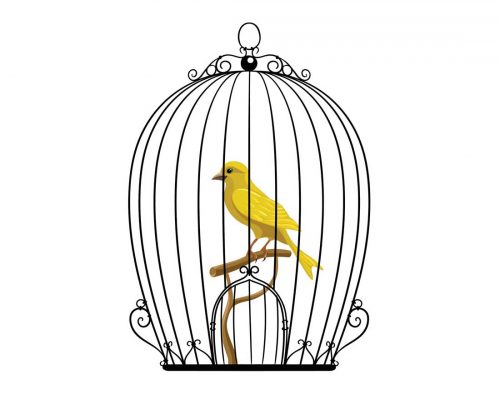
If you’re battling your weight, breaking free from a diet mindset may be what you need to get into a healthier pattern of thinking and eating. Registered nutritionist Nicola Jackson explores how.
Dieting doesn’t work. The majority of those who go on a diet regain weight over time. It’s a well-known fact, yet diets are forever seducing women (and increasing numbers of men) because they promise to make you slim. The theory goes like this. If other diets have failed, it’s because you’ve been doing it all wrong. What you really need to do is quit sugar. Or eat like a caveman. Or eat low carb, high fat. The truth is you don’t need to do any of this. For many people, what really needs changing is their mindset and behaviour around food.
When I work with women who have dieted for years, they’re often stuck in a diet cycle and don’t even know it. They say to me, “I just have no willpower!” or “I just can’t stop at one or two biscuits – I have to eat the whole packet”. The truth is, you DO have willpower, and you can learn to enjoy just a few biscuits. It’s all about changing your thinking and learning to bring back balance.
Are you stuck in a dieting mindset?
When you’re in a diet mindset, you’re more focused on rules around eating and exercise than you are on using your own internal intuition. Some features of a dieting mindset are:
- Banning foods or whole food groups
- Cutting out foods you enjoy eating that provide good nutritional value (eg. cutting out fruit)
- Thinking of food as either good or bad
- All or nothing thinking, eg. you’re either on a diet/being good or not caring/being bad
- Your main priority is reaching a number on the scales or certain body fat percentage, rather than health or well-being
- Spending on pills/potions/detox teas for fat loss
A diet mindset often leads to feelings of guilt, self-loathing and even anxiety. You lose touch with your eating intuition and rely more on fixed rules about what you should and shouldn’t eat.
This then becomes a cycle of dieting, overeating, guilt and feeling out of control when it comes to food and portion sizes. The good news is you can get out of this cycle! It takes a big shift in mindset to break this cycle, but it is possible.
Here’s how to start shifting your mindset and restore some balance:
1. Don’t view food as good and bad
It’s important to know that food isn’t good or bad. Food doesn’t have a moral value! Think of food as healthy foods or everyday foods, and treat foods or pleasure foods – whatever sits best with you. Eating some chocolate, or chippies, or whatever it may be that you love isn’t bad. It isn’t going to ruin your health. No food is ‘fattening’ or bad for your health unless you eat too much of it.
Don’t ban foods. It’s the fastest way to bring on food cravings. You’ll be surprised how the power of food is reduced when you allow yourself to eat it. You can eat pleasurable foods and still maintain weight and good health. It’s about moderation, and although this isn’t very trendy right now, it really works.
2. Find your own healthy balance
The best way to eat is to follow a pattern that works for you. In an internet age, there is an abundance of information on how to eat, when to eat and what not to eat. Find a healthy eating pattern that works for you, rather than worrying about everything you’ve read and how you should be following all of this advice. There are lots of healthy ways to eat. Sometimes, seeing a registered nutritionist or a dietitian is the best way to help you find a healthy balance that works for you.
3. Eat mindfully
Make an effort to start eating your meals more mindfully. Turn off the TV or computer. Sit down and enjoy the experience of eating. Eat your food slowly. Notice the flavours and textures of your food. This really helps with satisfaction and enjoyment and helps you tune into your own hunger and satiety cues as well. When you eat your favourite foods mindfully, rather than feeling guilty about it, you may find that you are satisfied with less and enjoy them more.
4. Focus on feeling good, well-being and health
When weight is the sole focus of lifestyle change, it’s easy to go back to old eating habits if you don’t see results. Focusing on health and well-being is not dictated by a number, rather than by behaviours and feelings of wellness. These goals are more positive, and of more benefit, than a sole focus on the scales.
For more on this topic, I highly recommend reading If not dieting, then what? by Dr Rick Kausman. If you keep falling into the same patterns, instead of buying the next diet book or programme, find a registered health professional that can help you work on changing your mindset and behaviours around food for good.
Nicola
 Nicola Jackson is a NZ-registered nutritionist with a passion for helping people to develop a healthier relationship with food. Nicola’s blog Eat Well NZ tells you why you don’t need to quit foods, follow rules, or go to the extreme to be healthy. Her blog showcases a balanced approach to eating well, with plenty of healthy recipes and other tips on nutrition, fitness and wellness. You can also find Nicola on Facebook and Instagram.
Nicola Jackson is a NZ-registered nutritionist with a passion for helping people to develop a healthier relationship with food. Nicola’s blog Eat Well NZ tells you why you don’t need to quit foods, follow rules, or go to the extreme to be healthy. Her blog showcases a balanced approach to eating well, with plenty of healthy recipes and other tips on nutrition, fitness and wellness. You can also find Nicola on Facebook and Instagram.
www.healthyfood.com










